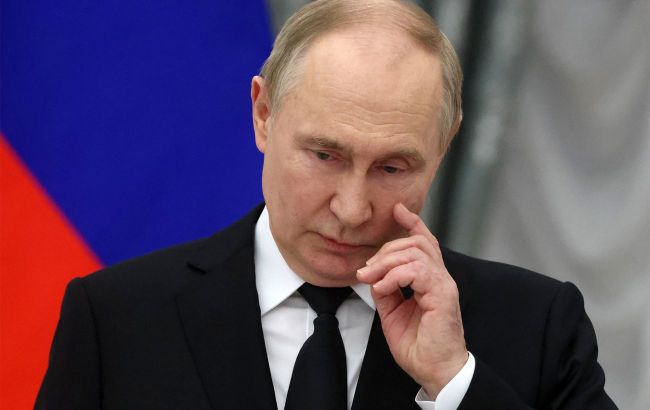Russian media receive instructions on how to cover negotiations in Istanbul
 Photo: Russian leader Vladimir Putin (Getty Images)
Photo: Russian leader Vladimir Putin (Getty Images)
The Kremlin has sent instructions to pro-government media outlets on how to cover the talks in Istanbul. The guidelines do not contain details about the position of the delegation, but the audience is already being prepared for a possible failure and new sanctions, Meduza reports.
According to the outlet, the Russian media received a directive from the Kremlin’s political bloc on how to report on the May 15 talks in Istanbul.
One section of the memo addresses the inclusion of Vladimir Medinsky, a presidential aide, in the delegation. Outlets are instructed to justify his participation by noting that he led the Russian negotiating team in Istanbul in 2022, framing the current talks as a logical continuation of his past role.
The propagandists are also advised to note that during the formation of the delegation, Russian leader Vladimir Putin was not influenced either by the words of American President Donald Trump or by the statements of Ukrainian President Volodymyr Zelenskyy.
Notably, the document provides no details on the position the Russian delegation is expected to present to the Ukrainian side. It also offers no predictions on how the talks might unfold or instructions on how to report the outcome.
At the same time, the authors suggest that pro-government media outlets tell employees that the negotiations are taking place under worse conditions for Ukraine than three years ago, but the instructions do not explain what the deterioration in conditions is.
Russia prepares the public for talks failure
At the same time, Kremlin political strategists are already advising loyal media to prepare the Russian audience for a potential failure of the talks. The text of the instructions refers to a new package of sanctions.
The guidelines suggest that pro-government outlets assure viewers and readers that:
-
The new sanctions will not hinder the country’s development,
-
Russia is successfully overcoming any sanctions-related challenges,
-
The national budget has been worked out with these sanctions in mind.
The document also touches on energy trade restrictions, claiming they will not affect the country’s steadily developing energy sector.
Negotiations in Türkiye
On the night of May 11, the Russian President rejected a joint proposal by Ukraine, the EU, and the US to establish a temporary 30-day truce in Ukraine.
Instead, Putin publicly called for the resumption of negotiations with Ukraine in Türkiye. Turkish President Recep Tayyip Erdoğan supported this initiative, emphasizing Türkiye's readiness to mediate in the peace process.
Analysts immediately said that Putin's arrival for a personal meeting was unlikely, and the head of the Office of the President of Ukraine, Andriy Yermak, said that Putin's refusal to personally participate in the talks would indicate Moscow's unwillingness to end the war.
At the same time, Ukraine has made it clear that it is ready for talks only if Putin is personally present.
As expected, Putin ignored the meeting with Zelenskyy and instead sent low-level officials to Istanbul. To be clear, this delegation was not even headed by the Russian Foreign Minister, but by Putin's aide Vladimir Medinsky, who had already participated in the negotiations in 2022.
Ukrainian President Volodymyr Zelenskyy arrived in Türkiye on May 15, as agreed, but expressed disappointment at Putin's absence.
Despite Putin's absence, the Ukrainian leader sent some of Ukraine's representatives to Istanbul, where the Russian delegation had arrived earlier.
Ukraine was initially represented at the highest level at the talks in Türkiye.
Later, US Secretary of State Marco Rubio expressed skepticism about the outcome of the talks, noting that there would be no breakthrough without a personal meeting between Putin and US President Donald Trump.

